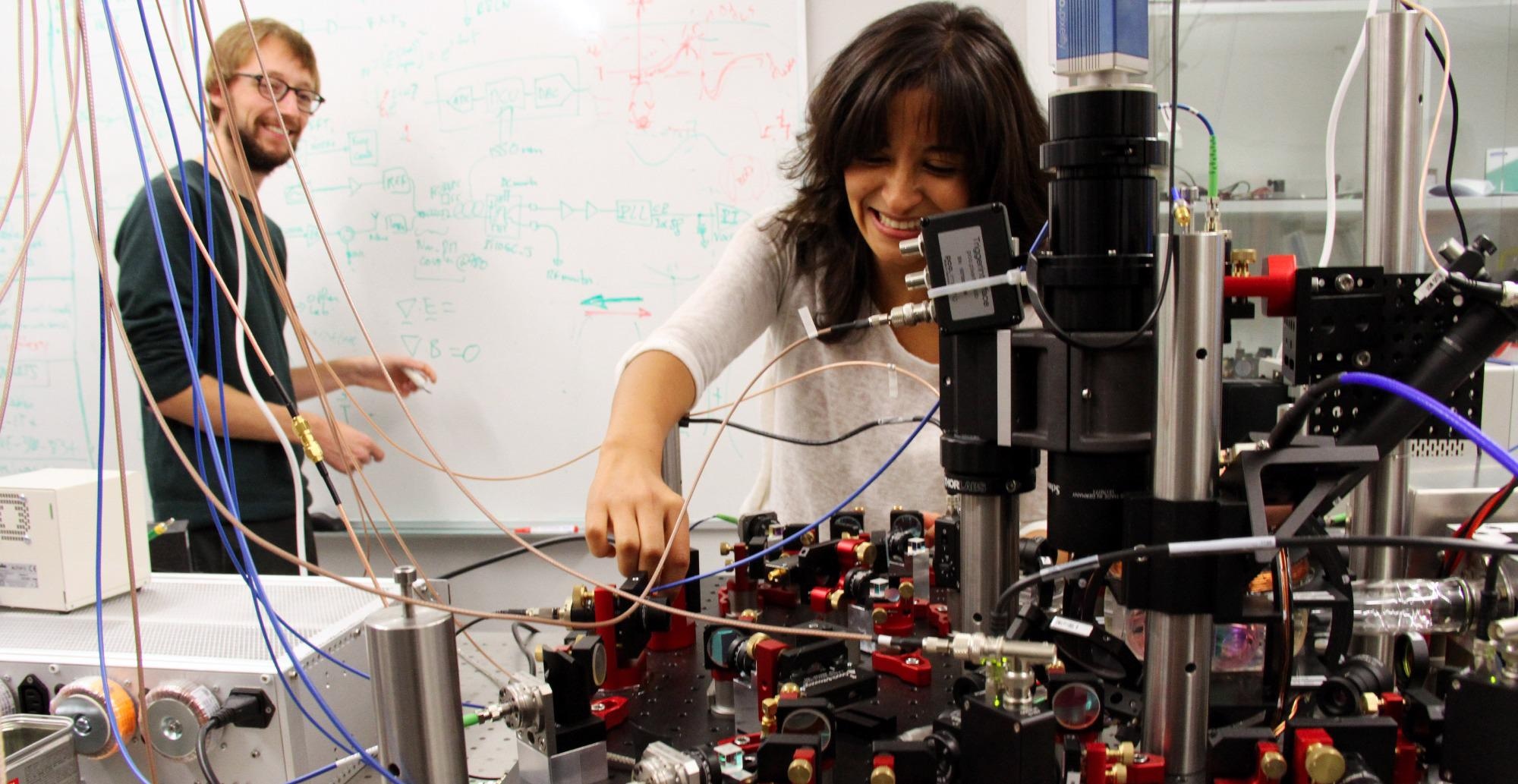Magnetometers are devices that measure the orientation, intensity, or relative changes of magnetic fields at a certain location and time. Magnetometers are used in a variety of research fields, including medical imaging and archaeology. They enable doctors to visualize the brain through medical imaging and archaeologists uncover hidden treasures without disturbing the ground.
 Silvana Palacios, author of the study, manipulating the experimental setup. Image Credit: ICFO.
Silvana Palacios, author of the study, manipulating the experimental setup. Image Credit: ICFO.
Certain magnetic fields of considerable importance, such as those produced by the brain, are exceedingly faint, a billion times weaker than the Earth’s field, necessitating the use of extremely sensitive magnetometers to detect them. For this goal, a variety of exotic technologies have been developed, including superconducting devices and laser-probed atomic vapors.
Magnetic sensors have also been developed from the imperfections that give some gems their hue. However, until today, the sensitivity of all of these technologies has remained constant, implying that some magnetic signals were simply too weak to be detected.
The energy resolution per bandwidth, abbreviated ER, is a metric that combines the spatial resolution, measurement length, and the size of the detected region to characterize this constraint in physics. Superconducting magnetic sensors hit the ER level = ħ in 1980, and no sensor has been able to surpass it since then (ħ, pronounced “h bar,” is the fundamental Planck’s constant, also known as the quantum of action).
Surpassing the Energy Resolution Limit
In a paper published at PNAS, ICFO researchers Silvana Palacios, Pau Gómez, Simon Coop, and Chiara Mazzinghi, led by ICREA Prof. Morgan Mitchell, report a novel magnetometer that accomplishes an energy resolution per energy bandwidth that is well beyond the said limit, for the very first time. The study was performed in collaboration with Roberto Zamora from Aalto University.
To make this unusual sensor, the researchers used a single-domain Bose-Einstein condensate. Rubidium atoms were used to make this condensate, which was cooled to nano-Kelvin temperatures by evaporative cooling within a near-perfect vacuum and kept against gravity by an optical trap.
The atoms produce a magnetic super-fluid, at these ultralow temperatures, which responds to magnetic fields like a regular compass needle but can reposition itself with no friction or viscosity.
As a result, even a very little magnetic field can cause the condensate to realign, allowing the minuscule field to be detected. The researchers demonstrated that their Bose condensate magnetometer has an ER = 0.075 ħ energy resolution per bandwidth, which is 17 times better than the old technology.
A Qualitative Advantage
These findings show that the team’s sensor is capable of identifying previously undetected fields. A better reading approach or the use of Bose-Einstein condensates made of different atoms could boost this sensitivity even more. The Bose-Einstein condensate magnetometer could be directly useful in understanding material properties and searching for the Universe’s dark matter.
Most importantly, the discovery demonstrates that ħ is not an insurmountable barrier, opening the way for other incredibly sensitive magnetometers to be developed for a variety of applications. The identification of extremely weak, transient, and localized magnetic fields could enable the investigation of new aspects of brain activity, which is exciting for neurology and biomedicine.
Journal Reference:
Alvarez, S. P., et al. (2022) Single-domain Bose condensate magnetometer achieves energy resolution per bandwidth below ℏ. Proceedings of the National Academy of Sciences. doi.org/10.1073/pnas.2115339119.